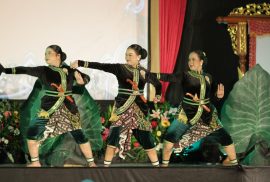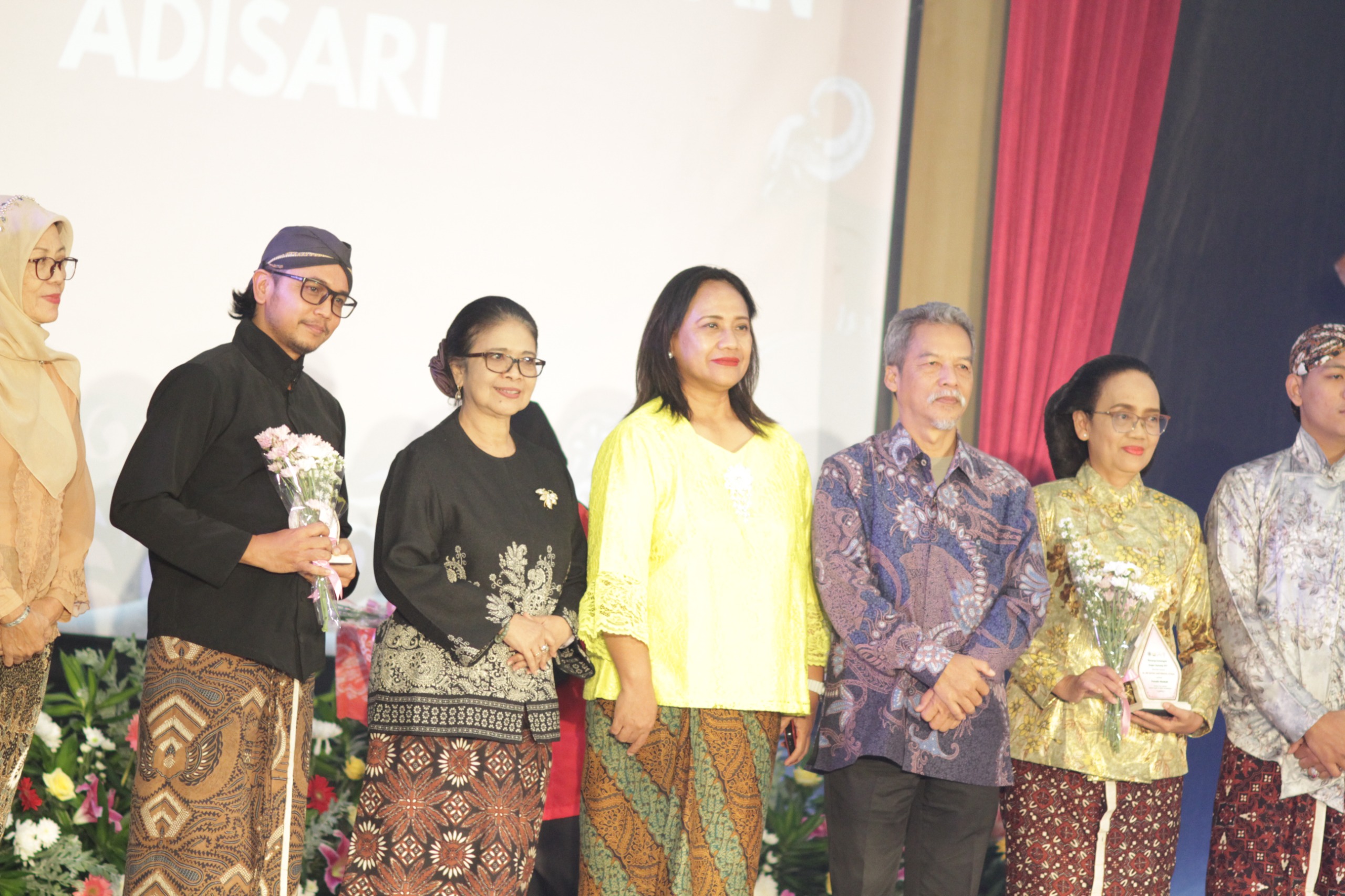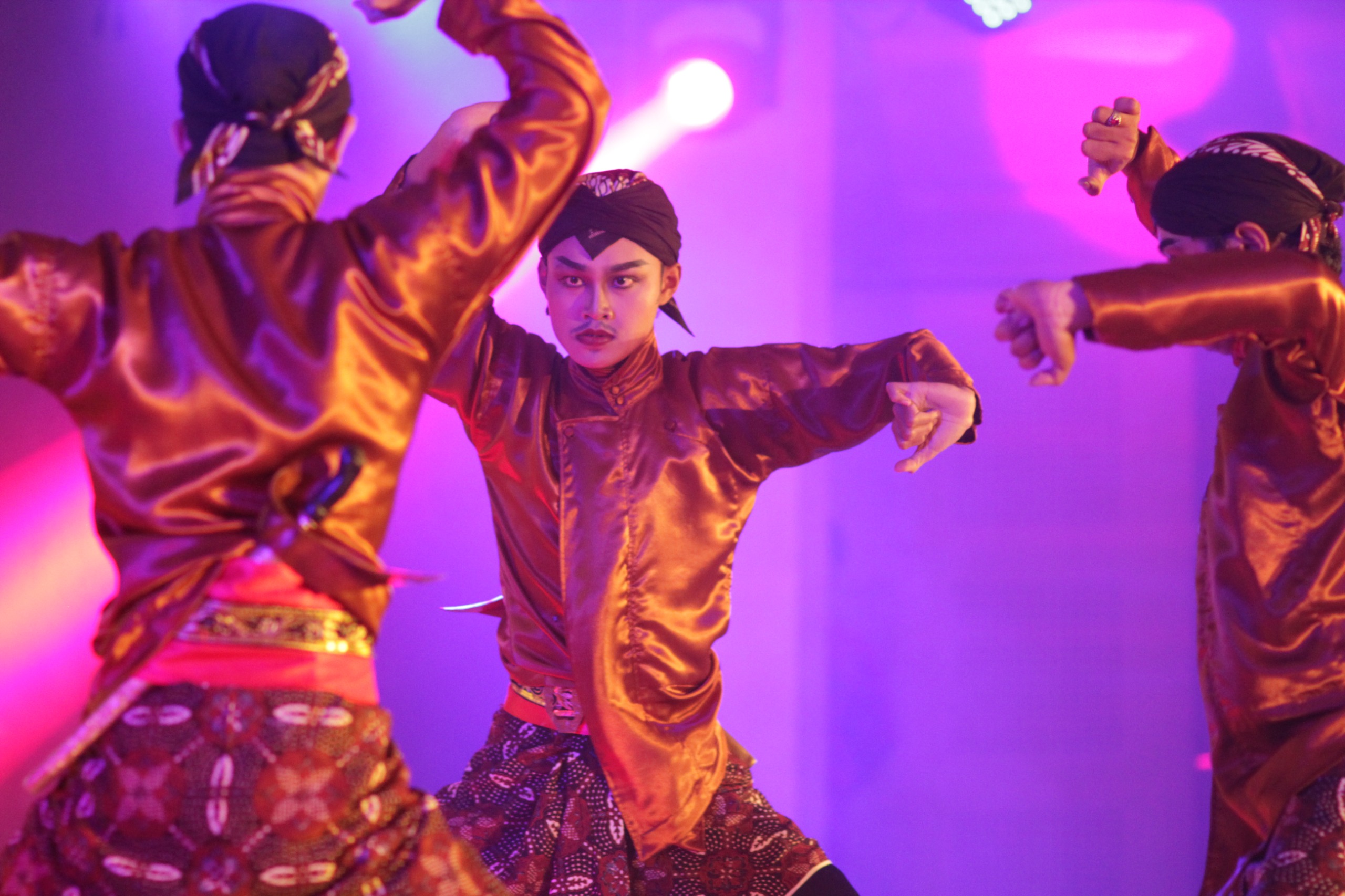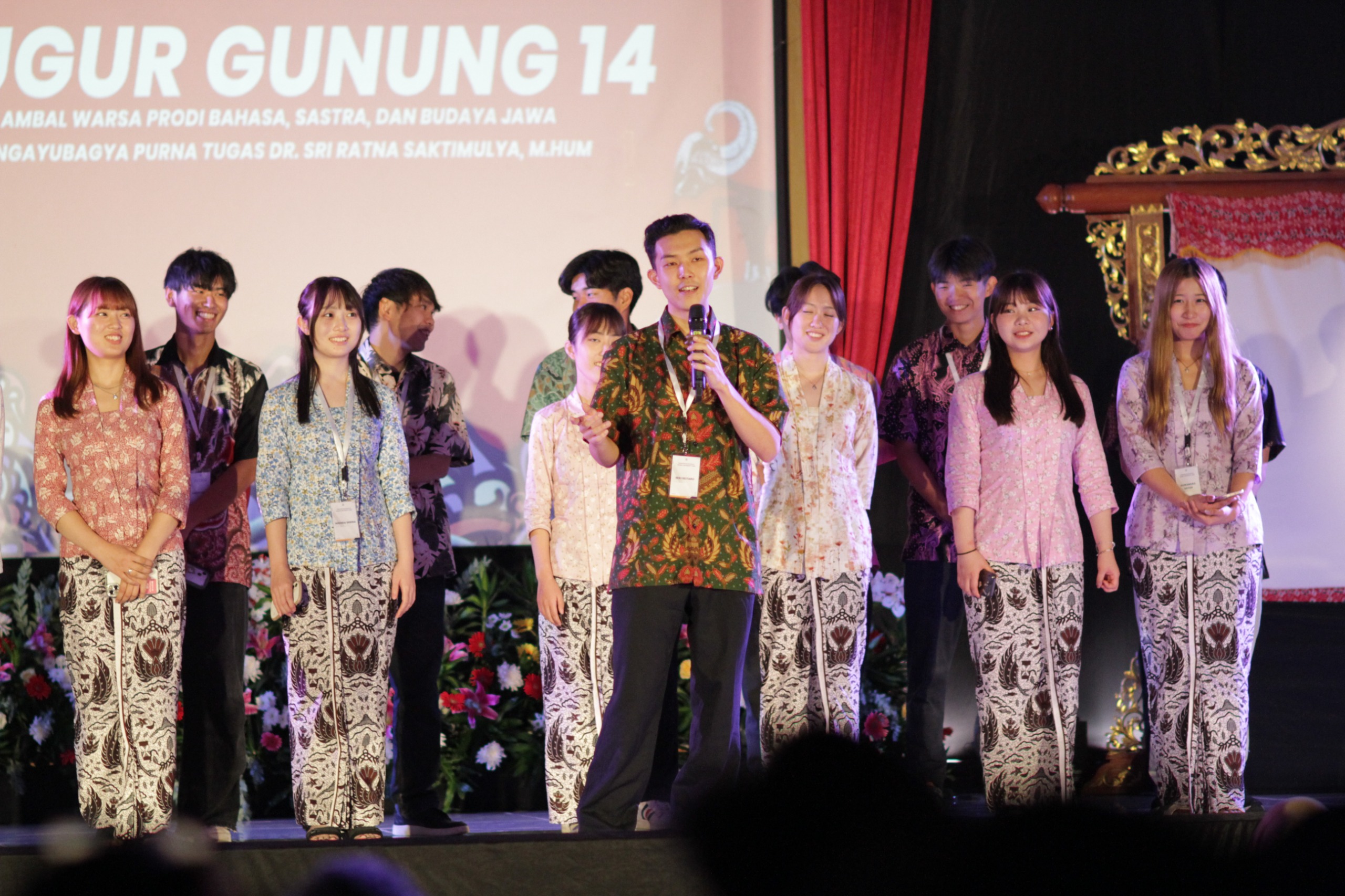Yoigyakarta, 19/9/2025 – A warm and meaningful atmosphere filled the Poerbatjaraka Auditorium, Faculty of Cultural Sciences (FIB) UGM, on Friday evening (Sept 19). Hundreds of attendees gathered for “Gugur Gunung 14: Anniversary of the Javanese Language, Literature, and Culture Study Program, as well as the Retirement Celebration of Dr. Sri Ratna Saktimulya, M.Hum.” The event was not merely a birthday celebration, but also a tribute, a gathering of kinship, and a cultural encounter across generations and nations.
Carrying the theme “Tataning Ucap Sirnaning Dhêsti” which means “Arranging Words to Avoid Misfortune,” the program opened solemnly with the Indonesian national anthem, Gadjah Mada Hymn, and Sastra March. A series of keynote remarks followed, delivered by Head of Study Program Dr. Daru Winarti, M.Hum., Osaka University’s representative Dr. Yumi Sugahara, Dean of FIB UGM Prof. Dr. Setiadi, and Vice Rector for Education and Teaching, Prof. Dr. Wening Udasmoro. The presence of cultural leaders from Kadipaten Pakualaman, government representatives of Yogyakarta, and international students from Osaka University enriched the evening with diverse cultural resonance.
A touching and symbolic moment took place in the Ambal Warsa procession, when the Head of Study Program, together with the Head of the Student Association Kamastawa, received a ceremonial tumpeng—a symbol of continuity for the Javanese Language, Literature, and Culture Study Program. The loud applause that followed embodied the spirit of togetherness, the very soul of Gugur Gunung.
The stage came alive with cultural performances, starting with the graceful Sekar Pudyastuti welcoming dance, symbolizing safety and blessing. A performance by Osaka University students added an international touch, before the audience was captivated by Tari Andhira from Sanggar Sigrak Delimo, which retold the heroic story of Nyi Ageng Sérang—a courageous Javanese heroine who fought against Dutch colonial forces.
The highlight of the night was the retirement tribute to Dr. Sri Ratna Saktimulya, M.Hum., fondly known as “Doktor Sakti.” Renowned as an academic, researcher, and cultural advocate, she has contributed greatly through her research, publications, and community service, and has been awarded the prestigious Satyalancana Karyasatya. As her parting gift, she presented “Adisari: The Light of Love Behind Conquest”, a performance art adaptation of an ancient manuscript, creatively transformed into a stage production.
The 14th Gugur Gunung was more than just a commemoration of the Study Program’s journey—it was also a reflection on the importance of preserving and celebrating culture. From students and lecturers to international collaborations, all came together on one stage, proving that Javanese language and culture continue to live, endure, and inspire.













